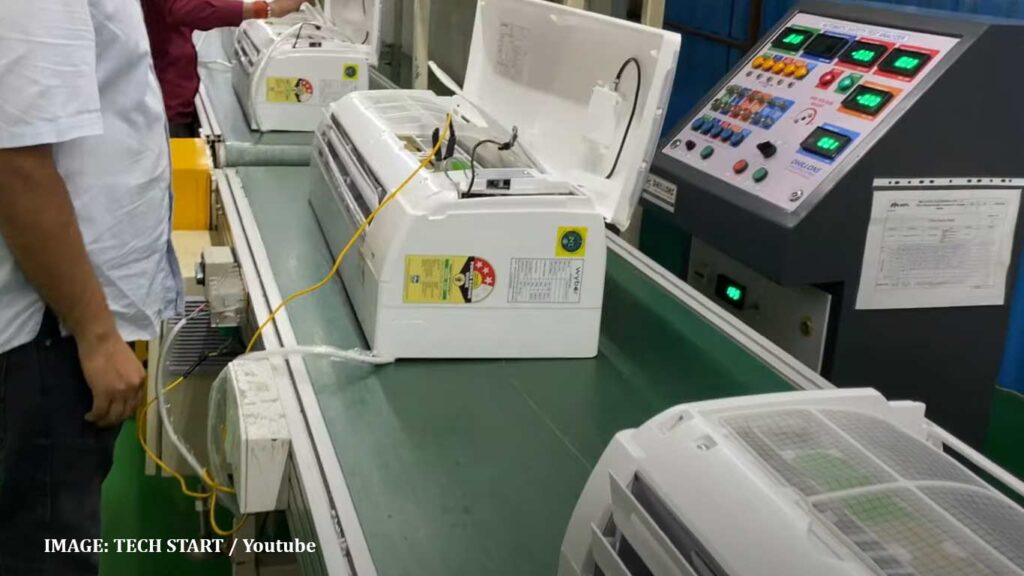New Delhi, Mar 31 (KNN) India can avoid severe power shortages and save consumers up to Rs 2.2 trillion by doubling the energy efficiency of room air conditioners over the next decade, according to a new study from the University of California Berkeley.
The research, conducted by the India Energy and Climate Centre, reveals that India adds 10 to 15 million new ACs annually, with another 130 to 150 million expected over the next decade.
Without policy intervention, ACs alone could drive 120 GW of peak power demand by 2030 and 180 GW by 2035—nearly 30 percent of projected totals.
“This growth is outpacing India’s power supply and could lead to serious electricity shortages as early as 2026,” said Nikit Abhyankar, the study’s lead author and UC Berkeley faculty.
“ACs are becoming one of the biggest drivers of peak demand, and without intervention, we risk blackouts or costly emergency fixes. But with smart policy, we can turn this into a win for consumers, manufacturers, and the grid,” Abhyankar added.
The report recommends updating India’s Minimum Energy Performance Standards, beginning with a 2027 revision that raises the 1-star label to ISEER 5.0—equivalent to today’s 5-star level—and tightening standards every three years.
This alone could avoid 10 GW of shortages by 2028, 23 GW by 2030, and 60 GW by 2035, equivalent to 120 large power plants.
Even with slightly higher upfront prices, the study asserted that efficient ACs could deliver net savings of Rs 66,000 to 2,25,000 crore by 2035, paying for themselves within 2-3 years through lower electricity bills.
The market is already adapting. The findings show that over 600 AC models, 20 percent of all offerings, already exceed India’s top efficiency threshold, the 5-star level, with many produced by domestic manufacturers.
“This is a chance for Indian manufacturers to lead,” said Jose Dominguez, co-author and IECC researcher.
The report also calls for updating AC test procedures to better reflect India’s humid climate, where comfort depends not just on cooling but on moisture removal. “In places like Mumbai or Chennai, dryness is as important as coolness,” said Nihar Shah, co-author and IECC lead on cooling.
“ACs that remove moisture from the air can keep people comfortable while using only half as much electricity. Efficient dehumidification is a critical challenge for industry,” Shah concluded.
(KNN Bureau)















